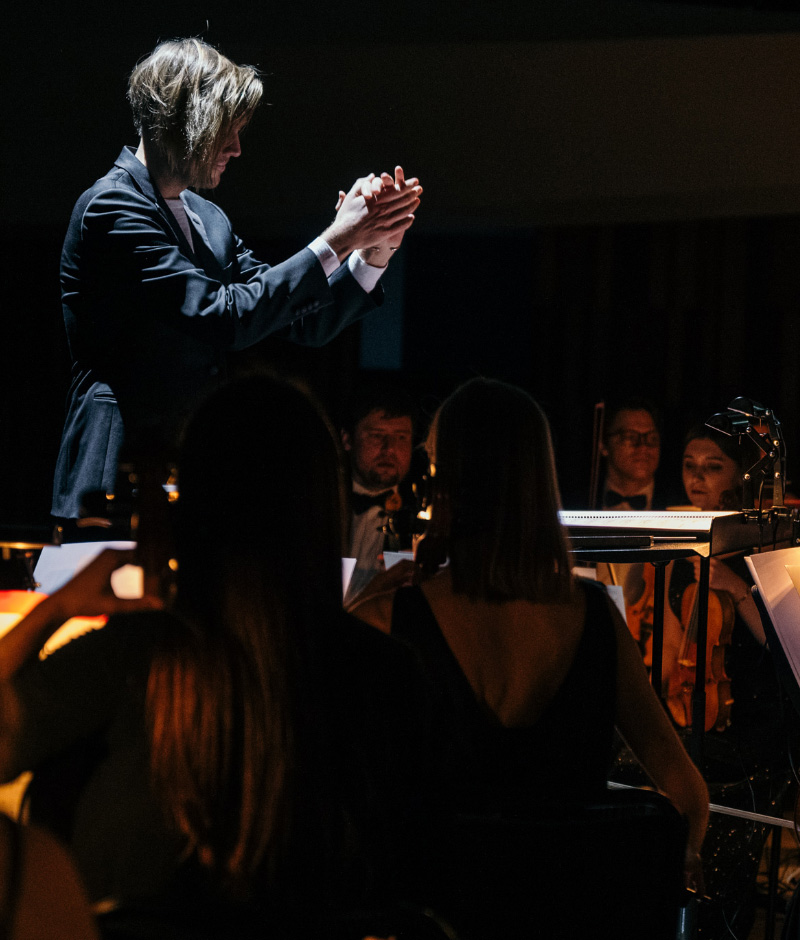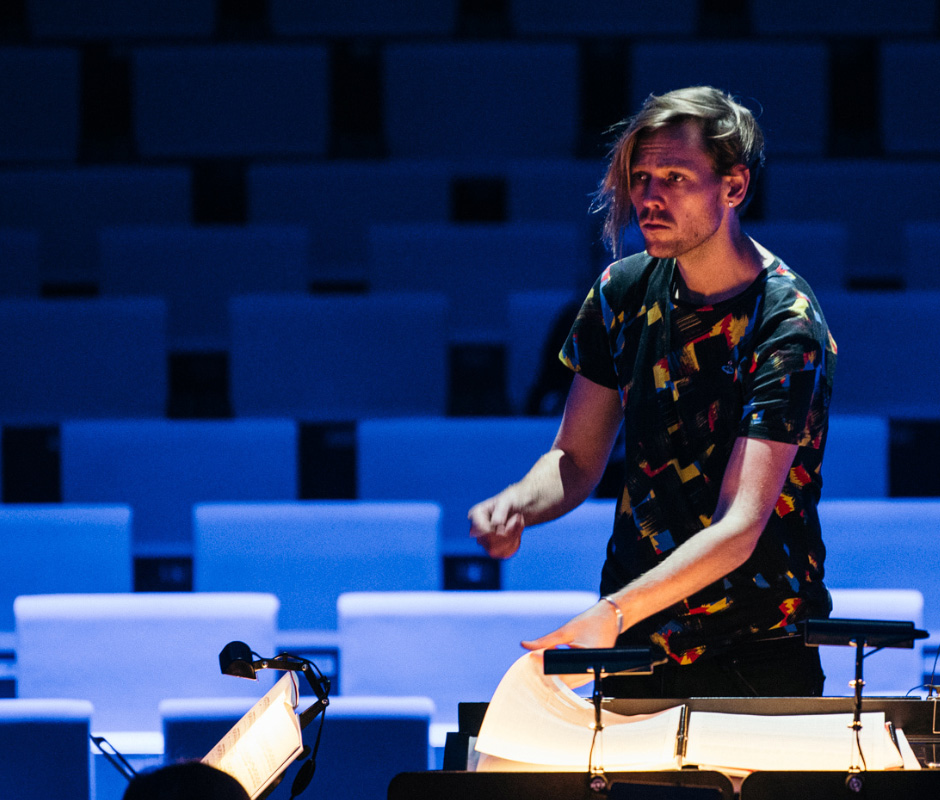About
Robert Ames is a conductor, composer, curator and co-founder of the London Contemporary Orchestra.
Over the last 15 years, Ames has pioneered a genre-fluid approach to collaboration, blurring the lines between electronic production and the classical tradition, opening new horizons for instrumental music in the process.
With two solo albums to his name and extensive soundtrack experience from indie films to mainstream Oscar-winners, Ames’ work is as comfortable at the BBC Proms as it is at Sydney Opera House, or on a Boiler Room broadcast.
Helping shape a now-established ambient and neo-classical landscape unshackled from the constraints previously applied to orchestral music, Ames’ experience marks him as one of the most exciting and influential artists working in the world today.
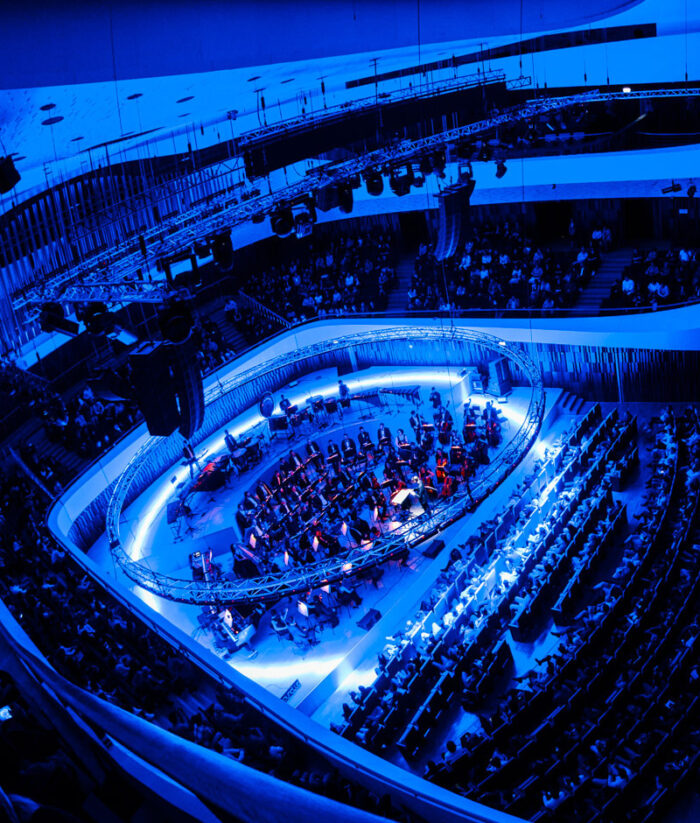
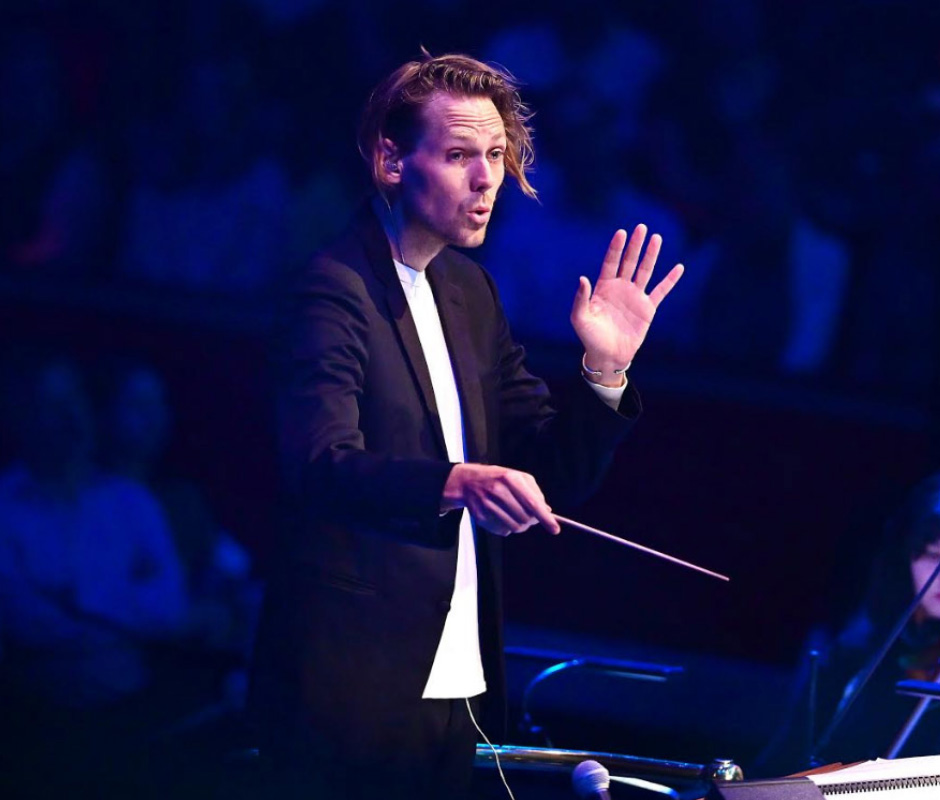
For Robert Ames, the story began when he was just 13.
Asked to conduct the school orchestra, and developing his own practice on the viola, his exposure to both perspectives on performance coincided with a desire to learn and listen to as broad a range of music as possible. “I always had a big love for orchestral music and I don’t necessarily just mean classical orchestral music, but instrumental music used in all kinds of different genres,” he remembers.
By the time he was studying classical performance at the Royal Academy of Music, Ames was devouring everything from jazz and improvisation to the twisted electronics of Warp and Ninja Tune. On the weekend, he would go dancing to drum’n’bass, or seek out the fragmented IDM of Autechre and Plaid, slowly knitting these influences into the fabric of his classical education.
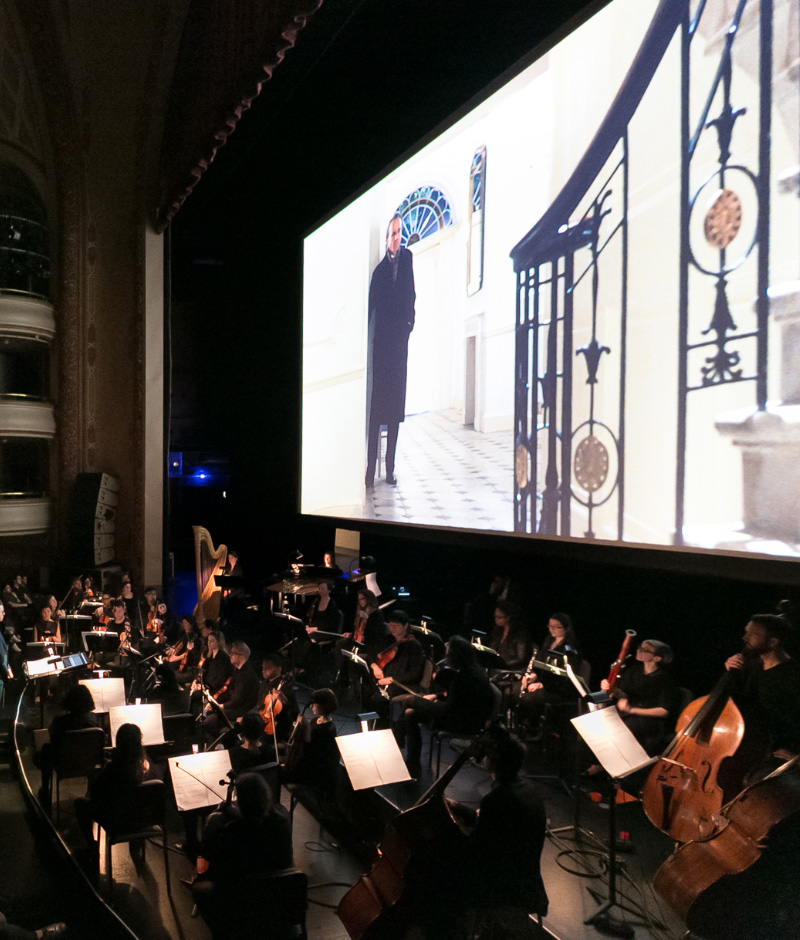
Convinced that orchestral music had more to give, Ames co-founded London Contemporary Orchestra in 2008 while still in his early 20s, initially as an outlet for the performance of new music. But the deeper he became immersed in what he calls the “progressive, interesting and radical” world of contemporary electronics, the more Ames began to hear the potential for collaboration. If you saw “genre as fluid, and instruments as really amazing tools to create sound and colour,” Ames wondered, why not invite artists like Clark or Mica Levi to explore their sound with an orchestra?
Despite the rich history of strings in popular music, treating the orchestra as a palette to be manipulated rather than a fixed entity with pre-existing rules still felt radical at the time, not least because it challenged preconceptions associated with so-called elite and underground spaces. As Ames explains, “The very loose artistic goal of the orchestra has always been great music to as many people as possible.”
In the fifteen years that followed, Ames has collaborated with musicians across the spectrum, from Radiohead, Little Simz and The National to Taylor Swift, Frank Ocean, Sigur Ros, The Weeknd and Self Esteem, and premiering works by Philip Glass, Hildur Guðnadóttir, Mica Levi, Jonny Greenwood, John Luther Adams, Terry Riley and Steve Reich. The list is singularly impressive and paints a picture of a musical scene now taken for granted. In each case, Ames’ guiding preoccupation has been one of sonic curiosity, creating a gathering point for like-minded artists seeking out new ways to challenge and express themselves.
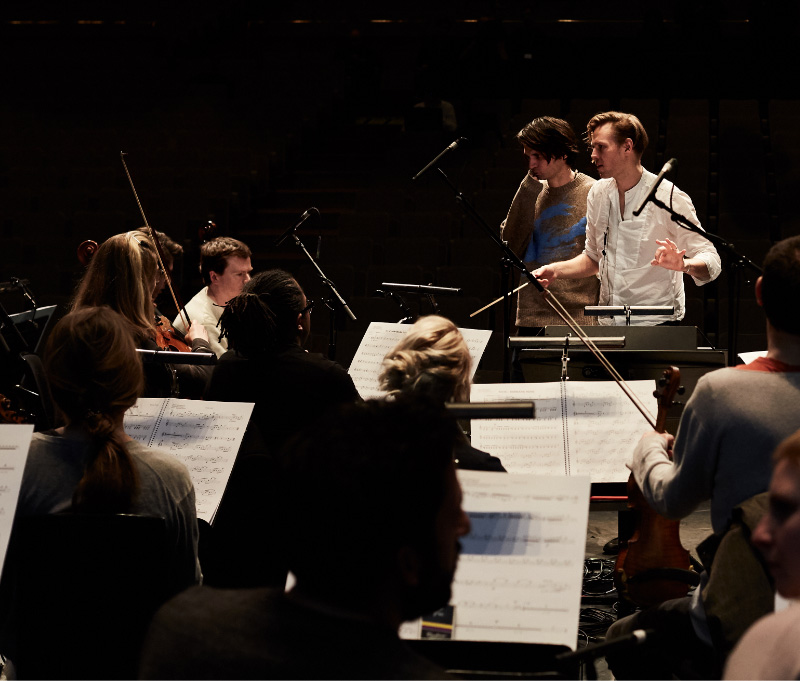
Although Ames may be best known as a conductor, his career as a composer has developed in step with a creative approach to arranging that treats the score not as a sacred document, but a vibrant entity that he can shape and interpret on his own terms. Absorbing inspiration from his collaborators, Ames has subsequently honed an approach to music-making that treats both performance and recording on equal terms.
The feeling, he says, is as physical as it is emotional. “With composition and conducting, it’s almost like you’re painting,” he explains. “You have your hands right into the detail of what’s going on, right into the thick of it. There’s something that is pure magic about making music in the moment and feeling people’s emotions change.”
Applying this sensitivity to his own productions, Ames released his debut album Change Ringing on BMG’s Modern Recordings in 2021, drawing on the parallel traditions of drone and spiritual music to explore his relationship with his father, who had recently passed away. The following year, Ames collaborated with Ben Corrigan to release CARBS, again on Modern Recordings, scratching an itch to make the kind of propulsive “Silver Surfer-meets-Space Odyssey” IDM that inspired him in his twenties.
Having worked on film scores with an array of composers, recently arranging and conducting on Volker “Hauschka” Bertelmann’s Oscar-winning score for All Quiet on the Western Front and Conclave and Jonny Greenwood’s Phantom Thread. Ames was commissioned to score his first film in 2024. That the contemporary classical and minimalist-inspired sounds of an independent artist like Hauschka would be considered for Hollywood cinema at all can be partially traced back to the influence of the LCO in shifting the dial of what experimental music can sound like.
Ultimately though, it is Ames’ experience at the front of an orchestra, mediating and manipulating the energy between instrumentalists and audience that has given him most perspective on the nature of composition. “That communal, ancient, primal thing of being in a space with lots of other people experiencing something all at the same time is something magical that can’t really be recreated,” he says.
In 2022, the LCO staged a 24-hour concert at the Barbican to live visuals and a programme that incorporated works from Morton Feldman and Éliane Radigue alongside new compositions by Galya Bisengalieva, Powell and KMRU. Immersive and meditative, it is an approach Ames’ is now extending on a new solo album. Playing with loops and toying with the concept of infinity, the music’s live iteration will not simply exist as a document of the recorded album, but as an entity in its own right, presented as a durational sound installation ahead of the album’s release. For Ames, it is the desire to create a space for human connection that excites him. “Anything I can do to help people feel that is a good thing.”
“I’m always interested in pulling at the edges to find deep ways to connect with people and audiences,” Ames reflects. Having built a career on the podium interpreting the work of others, Ames is now ready to step onto the stage and share his own with the world.
